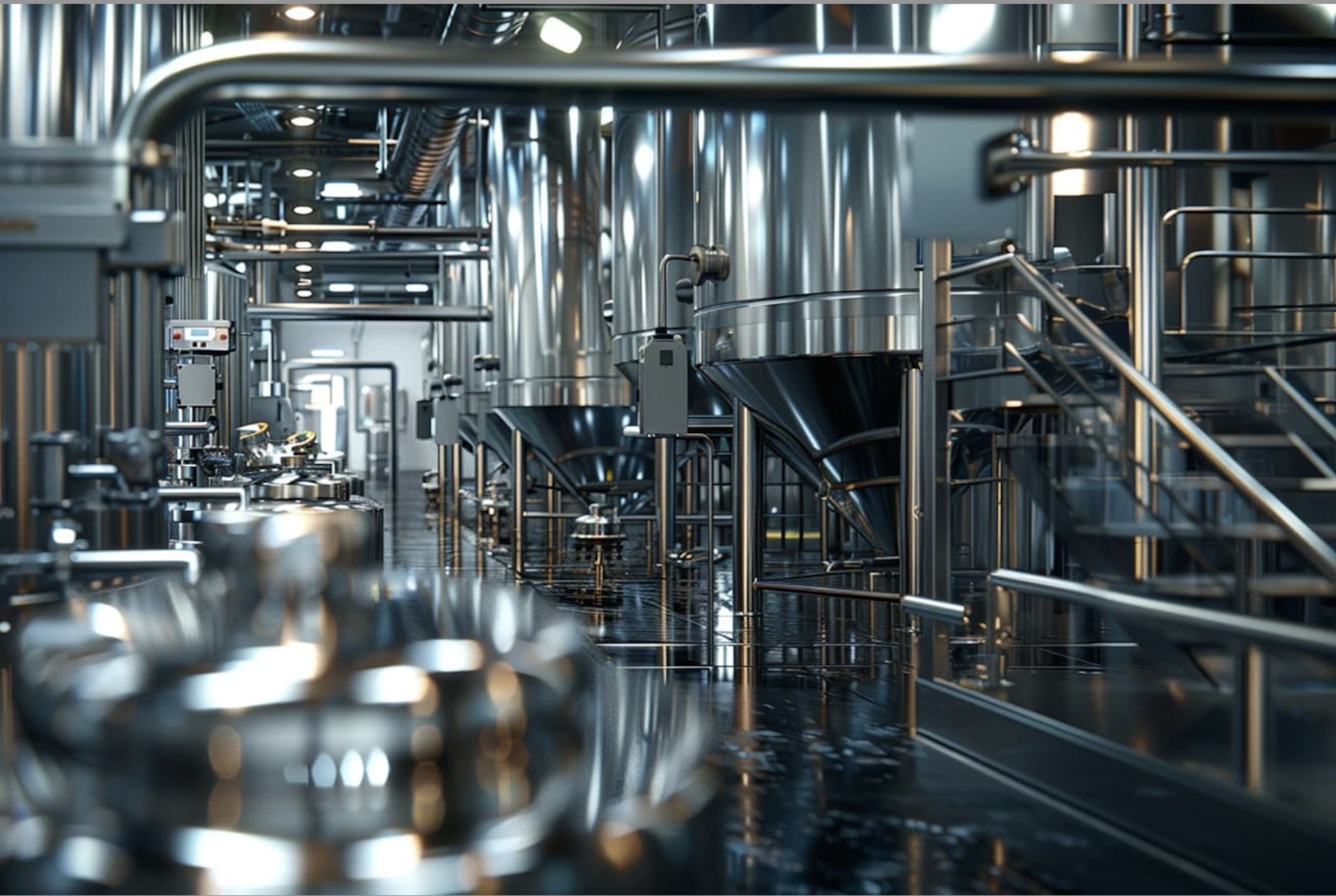
The food processing industry relies on stringent hygiene, durability, and efficiency standards to ensure safe and high-quality products. One of the most crucial elements in meeting these standards is the use of stainless steel equipment. Due to its resistance to corrosion, ease of cleaning, and long lifespan, stainless steel has become the gold standard for food processing facilities.
Why Stainless Steel?
Stainless steel is the preferred material for food processing equipment due to several key properties:
- Corrosion Resistance
Food processing often involves exposure to acidic and alkaline substances, moisture, and extreme temperatures. Stainless steel—especially grades like 304, 316L, and AL-6XN—resists corrosion from these elements, preventing equipment degradation and contamination of food products. - Hygienic Surface
Stainless steel has a smooth, non-porous surface that prevents bacterial growth. Unlike other materials, it does not absorb food particles or liquids, making it easy to clean and sanitize. Equipment such as tanks, piping, and fittings are designed with sanitary finishes that comply with industry regulations. - Durability and Strength
Food processing facilities require robust equipment that can withstand rigorous cleaning, high-pressure operations, and frequent usage. Stainless steel offers exceptional mechanical strength, ensuring a long service life and reducing the need for frequent replacements. - Heat and Chemical Resistance
Many food processing operations involve exposure to heat and strong cleaning agents. Stainless steel withstands high temperatures and aggressive cleaning chemicals without deteriorating, ensuring reliable performance over time.
Applications in Food Processing
Stainless steel is used extensively across various food processing sectors, including dairy, beverage, meat, bakery, and confectionery. Some common applications include:
- Processing Equipment: Mixers, blenders, homogenizers, and heat exchangers ensure consistent production quality.
- Storage and Transport: Stainless steel tanks, silos, and piping systems safely store and transport food products.
- Sanitary Fittings and Valves: Ensuring leak-proof and contamination-free connections between processing lines.
- Clean-in-Place (CIP) Systems: Automated cleaning systems that use stainless steel tanks and piping to ensure efficient and repeatable sanitation.
Custom Stainless Steel Equipment for Specialized Needs
Every food processing facility has unique requirements, and off-the-shelf equipment may not always be the best solution. Investing in custom stainless steel equipment allows manufacturers to design solutions tailored to their specific production needs. Custom fabrication includes:
- Bespoke Processing Lines: Optimized layouts to improve efficiency and minimize product loss.
- Specialized Tank Designs: Custom sizes and configurations for better integration into existing systems.
- Corrosion-Resistant Alloys: Advanced materials like AL-6XN and Hastelloy® C-22® for enhanced durability in aggressive environments.
Conclusion
Stainless steel is the backbone of the food processing industry. Its durability, corrosion resistance, and hygiene properties make it the ideal choice for manufacturing safe and high-quality food products. For processors looking for specialized solutions, custom stainless steel equipment provides tailored options that maximize efficiency, safety, and longevity. Investing in high-quality stainless steel systems ensures compliance with industry regulations while maintaining optimal production standards.
